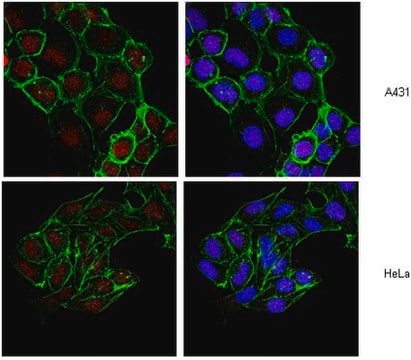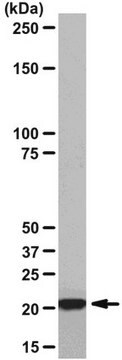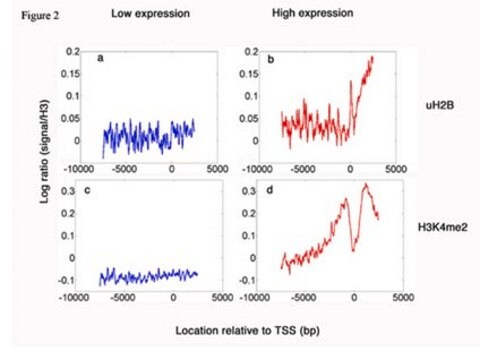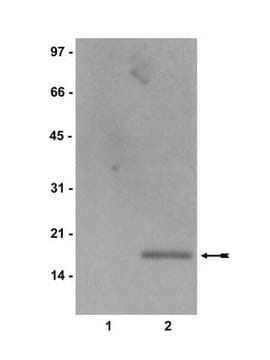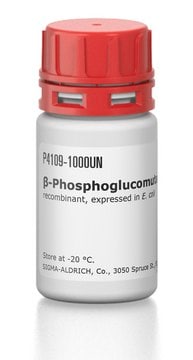07-371
Anti-Histone H2B Antibody
Upstate®, from rabbit
Sinónimos:
H2B, Histone H2B, H2B histone family, member Q, histone 2, H2be, histone cluster 2, H2be
About This Item
Productos recomendados
biological source
rabbit
Quality Level
antibody form
purified antibody
antibody product type
primary antibodies
clone
polyclonal
species reactivity
human, chicken
species reactivity (predicted by homology)
yeast (based on 100% sequence homology), Xenopus (based on 100% sequence homology)
manufacturer/tradename
Upstate®
technique(s)
western blot: suitable
isotype
IgG
NCBI accession no.
UniProt accession no.
shipped in
dry ice
target post-translational modification
unmodified
Gene Information
Saccharomyces cerevisiae ... Htb2(852284)
human ... H2BC1(255626)
General description
Specificity
Immunogen
Application
Epigenetics & Nuclear Function
Histones
Quality
Western Blotting Analysis: 2 µg/mL of this antibody detected Histone H2B in Chicken Core Histone.
Target description
Linkage
Physical form
Storage and Stability
Analysis Note
Acid extract from either sodium butyrate or colcemid treated HeLa cells.
Other Notes
Legal Information
Disclaimer
¿No encuentra el producto adecuado?
Pruebe nuestro Herramienta de selección de productos.
Optional
Storage Class
10 - Combustible liquids
wgk_germany
WGK 1
Certificados de análisis (COA)
Busque Certificados de análisis (COA) introduciendo el número de lote del producto. Los números de lote se encuentran en la etiqueta del producto después de las palabras «Lot» o «Batch»
¿Ya tiene este producto?
Encuentre la documentación para los productos que ha comprado recientemente en la Biblioteca de documentos.
Artículos
Loading controls in western blotting application.
Nuestro equipo de científicos tiene experiencia en todas las áreas de investigación: Ciencias de la vida, Ciencia de los materiales, Síntesis química, Cromatografía, Analítica y muchas otras.
Póngase en contacto con el Servicio técnico